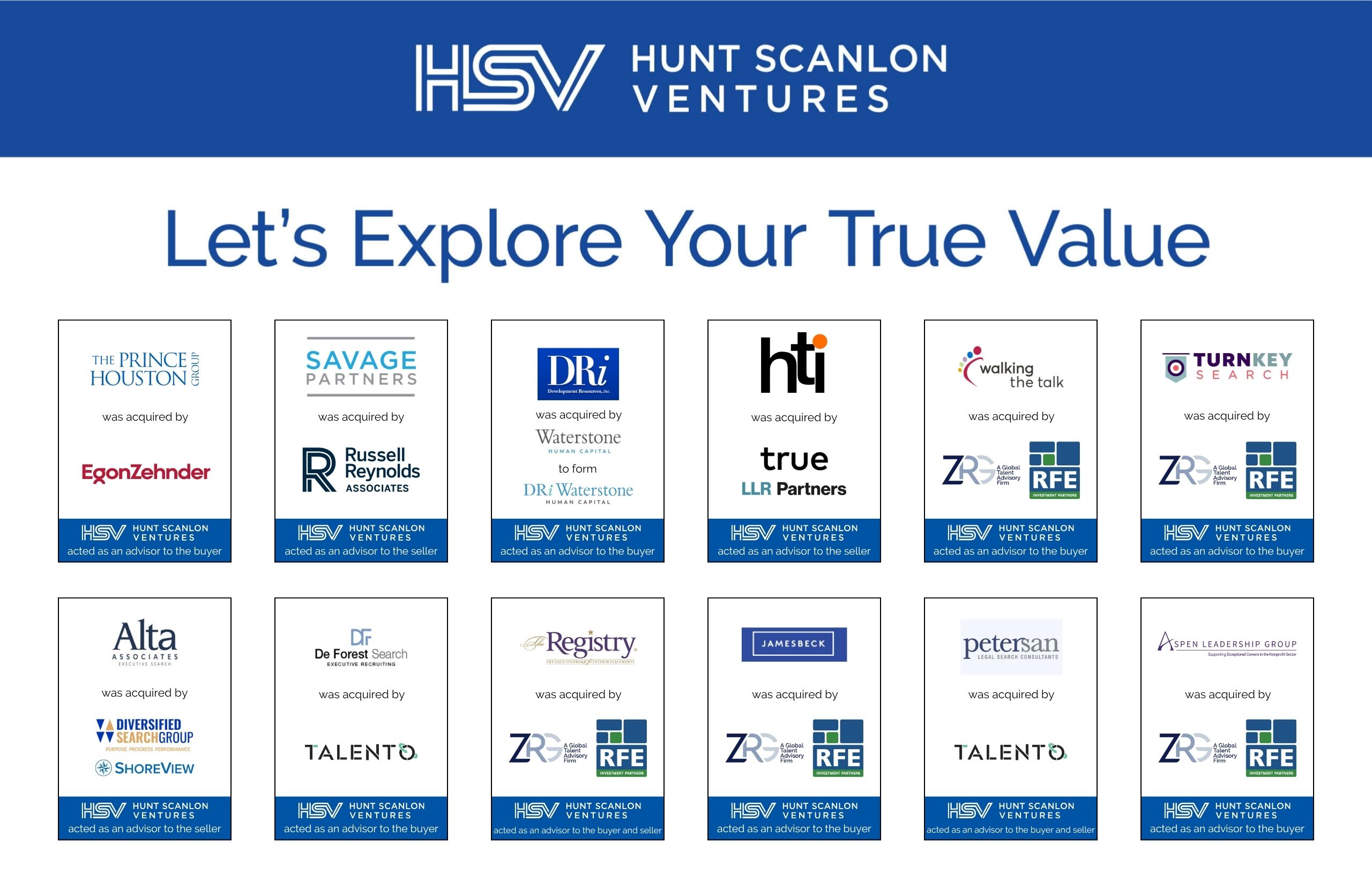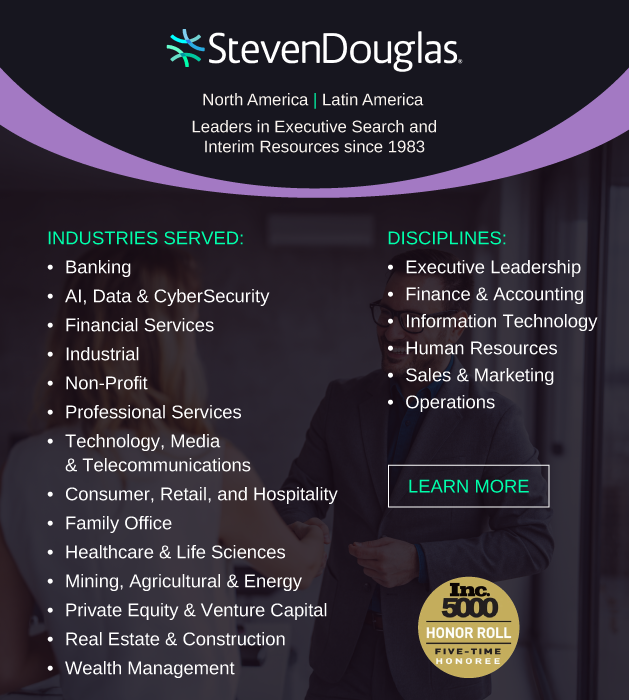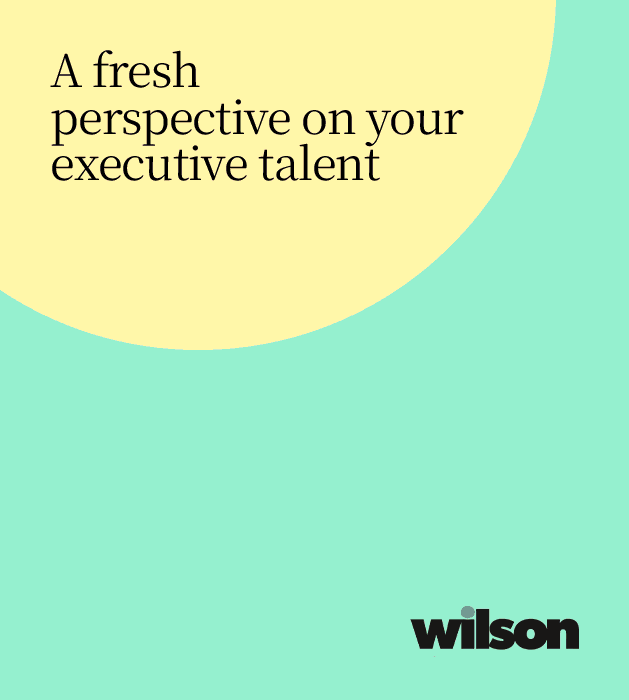As the role of talent leaders evolves from support function to strategic operator, their seat at the private equity table is more vital than ever. Leo Cummings, an associate at Hunt Scanlon Ventures, sat down with Jessica Fiesta George, Head of Talent at Atlantic Street Capital Advisors, to explore what’s changing, and what it takes to lead in today’s performance-driven PE landscape.
Private equity firms are growing, and so are the demands placed on their portfolio companies. As the traditional playbook of financial engineering and cost-cutting shows signs of fatigue, PE firms are looking to talent strategy to unlock growth and create long-term value.
That shift is at the core of the agenda at Hunt Scanlon’s upcoming ‘Private Equity Recruiting: Leading and Scaling with Talent’ conference in New York on May 15.
At that event, Jessica Fiesta George, Head of Talent at Atlantic Street Capital Advisors, will join a panel where she will bring a sharp perspective on how talent can drive impact at every stage of the investment cycle.
Leo Cummings sat down with Jessica last week to discuss how the role of talent strategy has been evolving at PE firms, the critical leadership capabilities she sees when scaling a portfolio company, and how to drive operational performance in fast-paced, high-performance environments and during periods of rapid change.

Jessica, how have you seen the role of talent strategy evolve within PE firms over the past few years?
Over the past few years, talent strategy has gone from being a post-close ‘nice to have’ to a core component of the value creation plan from day one. There’s a growing understanding that talent isn’t just operational support, it’s a direct lever for accelerating growth, mitigating risk, and driving valuation. Today, we’re being brought in earlier in the diligence phase to assess leadership capabilities, org structure, and cultural readiness. Talent partners are no longer just recruiters or HR generalists, we’re strategic operators working hand-in-hand with deal teams to shape outcomes for a successful future exit.
“Over the past few years, talent strategy has gone from being a post-close ‘nice to have’ to a core component of the value creation plan from day one.”
What are the most critical leadership capabilities you look for when scaling a portfolio company, particularly in the early post-investment phase?
As a firm, we look for a few characteristics: highly adaptable, action-oriented, and emotionally intelligent. We need leaders who can balance strategy with hands-on execution and aren’t afraid to get into the weeds. They should have a track record of navigating ambiguity, building teams from scratch, and scaling processes. But beyond the resume, we’re looking for leaders who can build trust quickly, influence across the organization, and align with the pace and intensity that PE environments demand. The ability to translate what the PE firm is asking and what the company needs is important for the leaders to be successful.
What are some of the most common talent-related challenges you see during the transition from founder-led to institutionally managed teams?
The shift from founder-led to institutionally managed often surfaces tensions around control, decision-making speed, and cultural evolution. Founders are used to wearing many hats and moving fast with limited process. As we introduce structure, governance, and new executive layers, it can feel like friction, especially if roles aren’t clearly defined. Another challenge is legacy loyalty; sometimes, the existing team isn’t scaled for what’s next. They aren’t used to oversight into their day-to-day and processes needed to help scale. Navigating those transitions with empathy and clarity is critical to avoid misalignment or create turnover. It’s been a challenge to introduce new ways of thinking that aren’t meant to disrupt but to challenge the status quo.
How do you ensure that leadership teams are not only aligned with business objectives but are also equipped to drive operational performance at scale?
“The firms that outperform will recognize talent as a core lever for value creation, not just an operational necessity. Shifting the mindset from HR as a transactional function to talent as a strategic thought partner is what will truly differentiate PE firms and their portfolio companies.”
It starts with clarity and transparency. Our team does a great job ensuring leaders deeply understand the value creation plan, their role in it, and the metrics that define success. Then we focus on capability building through executive coaching, team alignment sessions, and performance frameworks. Our operating advisor model allows our teams to have regular check-ins and transparent communication to help identify gaps early. We also look at succession and bench strength which helps to make sure we’re not just aligned for today, but prepared for the growth ahead.
What best practices have you found most effective when onboarding executive hires into fast-paced, high-performance environments?
A structured onboarding plan tailored to the pace of PE is essential. Communication early and often. Our organization pairs new leaders with a peer/advisor who has complementary industry experience to help accelerate their 30-60-90 day priorities. We built a shared service model that reflects the corporate org structure and have advisors for each part of the business who help guide through the value creation plan to getting them to exit. These departmental liaisons (HR, Finance, Operations, Sales) have regular touchpoints to help monitor progress and build trust early. The goal is to accelerate their ramp-up, reduce surprises, and create early wins.
How do you assess whether a candidate, or a leadership team, is the right cultural fit for a portfolio company, especially during periods of rapid change?
Cultural fit goes beyond values — it’s about how people lead, communicate, and handle pressure. We assess this through behavioral interviews, scenario-based questions, and even referencing patterns in decision-making or past team dynamics. We introduce candidates to several areas of the business early in the interview process to pressure test alignment with leadership style, pace and change-readiness of the organization.
“Cultural fit goes beyond values — it’s about how people lead, communicate, and handle pressure.”
How are you and your team leveraging tech-enabled tools to improve talent acquisition, development, or engagement across the portfolio?
We are getting better at introducing more tech-enabled tools to our portfolio companies, but I have personally been exploring ways to use AI-driven tools for sourcing, screening, and assessing candidates, which helps improve both speed and quality. On the development side, we use platforms for leadership assessments, pulse surveys, and engagement tracking across the portfolio. What’s powerful is the ability to identify trends, interpret HR data and analytics, improve recruitment marketing or communication, or run scenarios to determine whether a team is ready to scale or identify gaps to help them build processes. It’s not about replacing the human side of HR, but to enhance it. Some of our leaders embrace the change, but many are slower to integrate AI into their work streams.
Looking ahead, what do you think will separate the top-performing PE talent functions from the rest over the next 3 – 5 years?
The firms that outperform will recognize talent as a core lever for value creation, not just an operational necessity. Shifting the mindset from HR as a transactional function to talent as a strategic thought partner is what will truly differentiate PE firms and their portfolio companies. Top-performing talent leaders will be embedded in the deal lifecycle, fluent in business strategy, and equipped to measure and communicate their impact. They’ll prioritize building scalable, repeatable talent systems — not relying on one-off heroic hiring efforts — and will use data to drive faster, smarter decisions. Ultimately, success will come down to agility: supporting near-term execution while developing the leadership capacity required for long-term scale.
Article By

Leo Cummings
Leo Cummings is Editor of ExitUp, the investment blog from Hunt Scanlon Ventures designed for professionals across the human capital M&A sector. Leo serves as an Associate for Hunt Scanlon Ventures, providing robust industry research to support the firm’s investment group.






